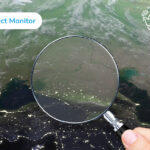The Russian Federation actively prevents international organizations from observing the humanitarian situation in Crimea, in stark contrast to the international monitoring allowed in Donetsk and Lugansk. Having restricted access to Crimea for over six years, Russia masks violations of human rights and international law.
Russia’s disregard for international law
The Autonomous Republic of Crimea and Sevastopol remain unreachable by the United Nations, Organization for Security and Cooperation in Europe (OSCE), and Office of the High Commissioner for Human Rights (OHCHR). A permanent member of the UN Security Council, Russia has blocked two resolutions on Ukraine and issued vetoes 19 times since 2011. In comparison, the U.S. has issued only three vetoes in the same period. Since March 2014, Russia has been the only member of 57 states to deny an OSCE Special Monitoring Mission (SMM) to Crimea. The OSCE is unable to send international observers until all member states reach a unanimous consensus. The nearest OSCE mission stationed in Kherson Oblast, which borders the Crimean Peninsula, cannot supervise and refute Russia’s claims of Ukrainian abuse towards Russian speakers. OHCHR and other human rights agencies conduct limited human rights monitoring of indigenous Tatar populations, violations of freedom of press and assembly, and imposition of automatic Russian citizenship through interviewing victims who fled Crimea.
Violations of Tatar minority rights
Crimean Tatars, a Muslim ethnic minority, have been the targets of 422 human rights abuses including discrimination, unlawful imprisonment, and the disappearances of 17 Tatar leaders. The UN 74th General Assembly reinforced concern regarding forcible deportation, frequent police raids of Muslim religious schools, and mass detentions of Tatar civil society on the grounds of terrorism. The UN urged Russia to respect the “UN Standard Minimum Rules for the Prisoners”, allow international health organizations to investigate all deaths in detention, and comply with the orders of the International Court of Justice obligating Russia to follow international law as an occupying power. Despite numerous orders and international resolutions, Russia actively continues to violate mandates on minority rights with no international reinforcement.
Establishment of a Crimean military base
The European Union’s European External Action Service (EEAS) stated that the Russian Federation illegally conscripts residents of annexed Crimea and Sevastopol. The Kremlin violates the international humanitarian law of the Fourth Geneva Convention, which prohibits an occupying power from drafting or encouraging voluntary enlistment from annexed lands. Additionally, Russia continued to hold Caucasus-2020 military drills, involving 150,000 personnel deployed over the Black and Caspian Sea regions throughout the summer, and prompting Ukraine to launch joint military exercises with NATO. The absence of international supervision permits the Kremlin to establish an anti-access/area denial (A2/AD) zone over the Black Sea necessary to restrict freedom of the seas and monitor NATO ships in the Mediterranean. Similar disregard for UN convention occurred during the Kerch Strait military blockade in 2018, when Russia inhibited entrance to the Sea of Azov for Ukrainian vessels. Restraints on international observation missions limit available information on Russian military expansion and the preservation of nuclear-free status on the peninsula.
Lack of accurate reporting
The situation in Crimea is exacerbated by the absence of international supervision, drought, and the COVID-19 pandemic. The peninsula experienced one of the driest winters followed by an equally rain-less summer. In February, the de facto government in Crimea announced a potential humanitarian crisis, developing plans for water rationing in the north and eastern parts of the peninsula. In 2014, Ukraine cut off all water supply to Crimea via the North Crimean Canal, which had provided 85% of its fresh water. The Ukrainian foreign ministry remains skeptical of Russian media reports on water shortages, claiming it is Russia’s way of obtaining international support for the supply of water to its military bases and industry in Crimea. As a result, there is lack of accurate reporting on access to water in the region.
The Mejlis of the Crimean Tatar People called for the OSCE SMM and the UN Human Right Monitoring Mission to visit Crimea due to rapidly increasing COVID-19 cases and refusal of treatment. The Mejlis said Russian authorities in Crimea had severely underreported the mortality rates by misreporting in medical documents. The Presidium of Mejlis reports that Russian authorities provide no COVID-19 information relating to detained political prisoners. Tatars urge the World Health Organization (WHO) and the International Red Cross to expand their missions to Crimea. Crimean state media suppresses COVID-19 information from international organizations with over 90% of articles dealing exclusively with Russian authorities responding to the pandemic. Currently, the Russian Federation has the fourth largest statistic on confirmed cases totaling at 1,531,224 people.
Sources: Beyond the Horizon, EEAS, Aljazeera, Human Rights Watch, Security Council Report, undocs.org, RFE/RL, UA: Ukrainian Radio, Ukrinform, WHO, The Crimean Human Rights Group, Crimea SOS, ECFR

